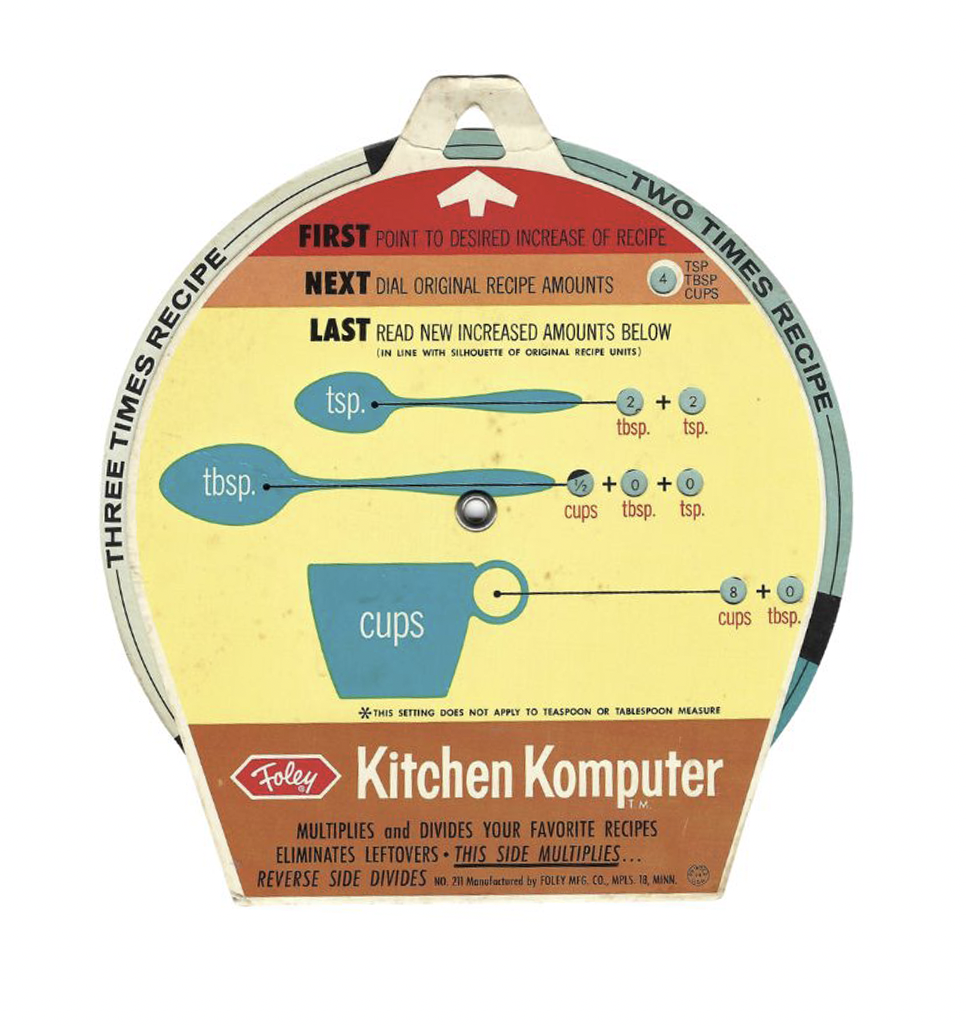
Dorri Partain
Assistant Editor
Savvy, modern day cooks may have a computer in their kitchen that stores all their favorite recipes and searches for new ones, but the Foley Kitchen Komputer was ahead of its time.
Not much bigger than a floppy disc, this cardboard computer can help cooks to increase or decrease the amounts of ingredients needed with a simple turn of the dial.
While it may be simple to double a recipe, tripling or making one and a half recipe would require more complex mathematical calculations. In reverse, making less would require long division and some cooks might be tempted to throw in the kitchen towel than tackle that process.
Produced with the guidance of The Culinary Society, Inc., this two-sided computer calculates multiplying a recipe on one side, and dividing on the other. First, the user would point the top arrow to the desired portion, then turn the dial to the original recipe amount in teaspoons, tablespoons or cups, which appears in a window. Last, the new recipe amount appears next to a graphic for teaspoons, tablespoons or portions of cups. An asterisk (*) denotes a measurement that doesn’t apply to teaspoon or tablespoon measurements.
Foley Manufacturing Co. of Minneapolis, Minnesota first began as a producer of sawing products, but ventured into metal kitchen utensils when new owner Walter M. Ringer purchased the rights to produce a food mill in 1934. The Foley food mill, along with a one-handed flour sitter and a six-tined blending fork, known as the Foley fork, became the company’s best selling products and led the way for a full array of non-electric kitchen utensils.
From cookie cutters to cake and pie pans, Foley products could fill a kitchen cabinet with useful gadgets; their advertising slogan in 1954 stated the simple truth,
“It’s easier with Foley utensils”. While the brand was well-known in kitchens across America, the company had continued to manufacture various sawing products. In 1982, the company merged with Belsaw Machinery to create the Foley-Belsaw Company; the end result ceased the manufacture of kitchen utensils.



















